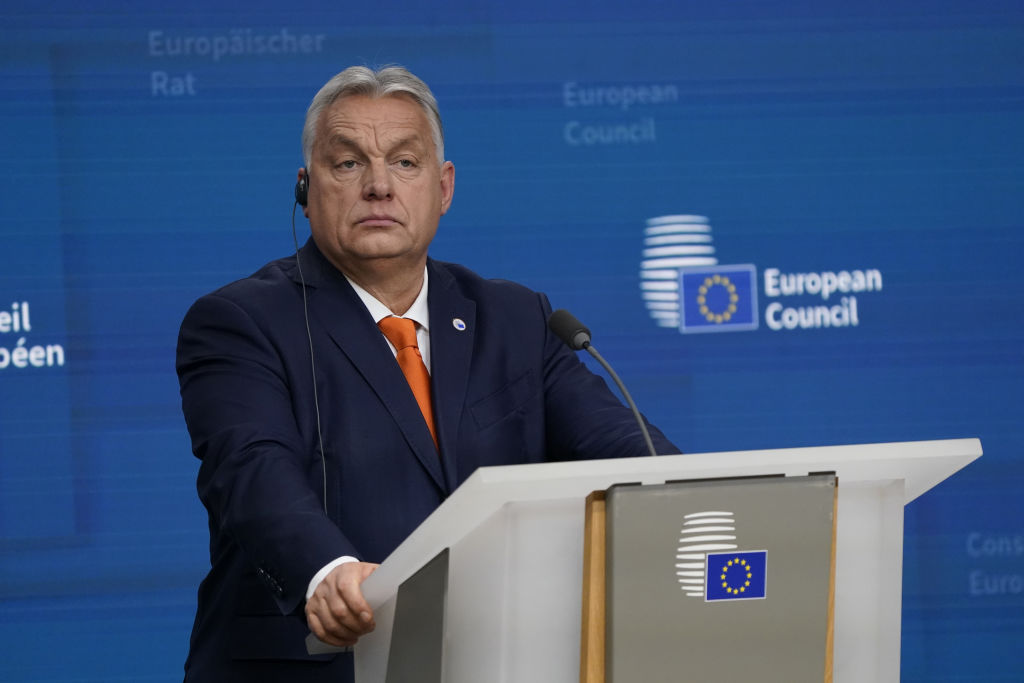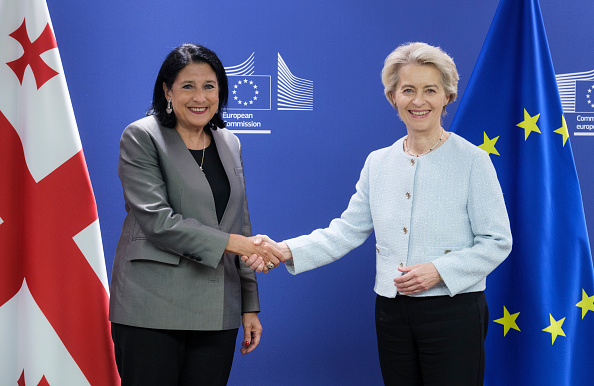Eurozone inflation has hit 2.4 per cent on an annual basis in its third straight increase.
Raising fears of “stagflation”, a combination of inflation and stagnant economic growth, the December year-on-year euro inflation data released by the European Central Bank (ECB) on January 7 marked a jump from 2.2 per cent in November.
Analysts told Brussels Signal on the same day that the figure revealed a faltering economy and an overly benign approach to interest rates.
With inflation rising in most major eurozone economies — 20 member states of the European Union have adopted the euro as their primary currency — the news revealed the Frankfurt-based ECB was struggling to bring inflation below its stated 2.0 per cent goal.
“While this rise aligns with expectations, the spotlight remains on the region’s faltering economy,” Richard Flax, a former Goldman Sachs executive director, told Brussels Signal.
The eurozone economy grew by just 0.8 per cent in 2024, with France and Germany, its largest economies, in crisis. Spain, which made up only 10 per cent of eurozone GDP, accounted for 40 per cent of its growth.
Germany’s energy-intensive manufacturing sector was particularly heavily exposed both to Russian pipeline gas restrictions and cheaper Chinese competition in exports.
Tough German regulation had put its start-ups in a less competitive position than competitors elsewhere, said Jari Stehn, chief European economist at Goldman Sachs.
Inflation in Germany, at 2.8 per cent, was higher than the eurozone’s average. It was more than that in Belgium, at 4.4 per cent. Ireland, at 1 per cent, had the region’s lowest inflation, although it rose in December.
Maybe most troubling for the ECB, core inflation, which excludes volatile prices such as food and energy, rose by 0.5 per cent in December. The price of services increased more, at 4 per cent.
While the ECB “is widely anticipated to lower interest rates to 3 per cent later this month” in a January 30 meeting, investors were “calling for a larger rate cut to support the economy”, added Flax, now chief investment officer at digital wealth manager Moneyfarm.
GianLuigi Mandruzzato, senior economist at EFG Asset Management, told Brussels Signal the “risk is that the ECB remains behind the curve and eventually interest rates will have to be reduced more than markets currently anticipate”.
Daniela Sabin Hathorn, senior market analyst at Capital.com, told Brussels Signal: “The dovish bias expected from the ECB has left the euro struggling to find its footing.”
That meant the euro “remains at the mercy of the US dollar and its momentum” with US President-elect Donald Trump’s announced new tariffs likely to buoy the dollar, she added.
Investors have said they believed widespread Trump tariffs would force the US Federal Reserve to keep interest rates high to stave off inflation, which in turn would boost the dollar – while, in turn, disproportionately impacting the euro.





